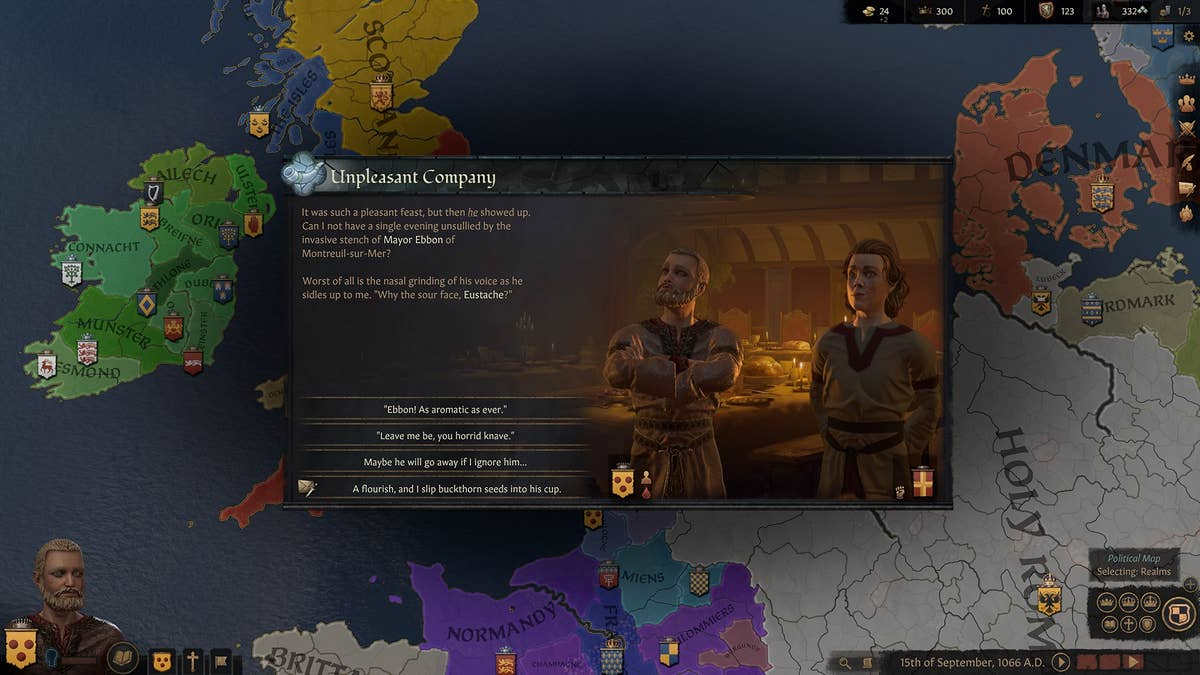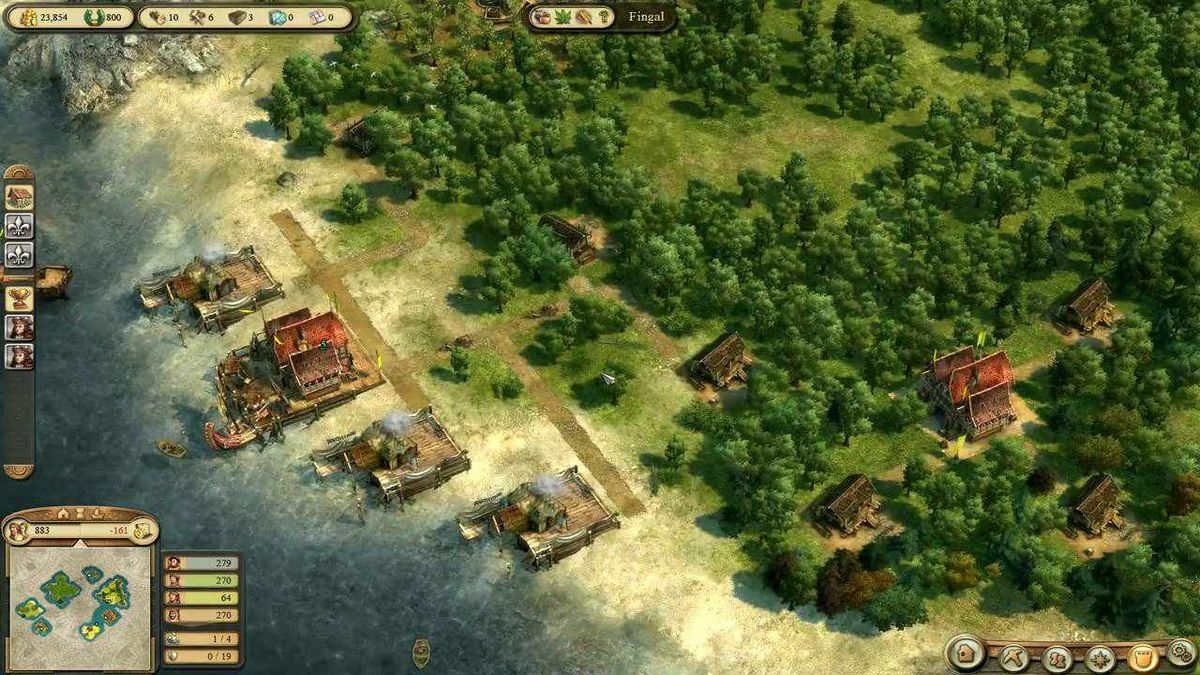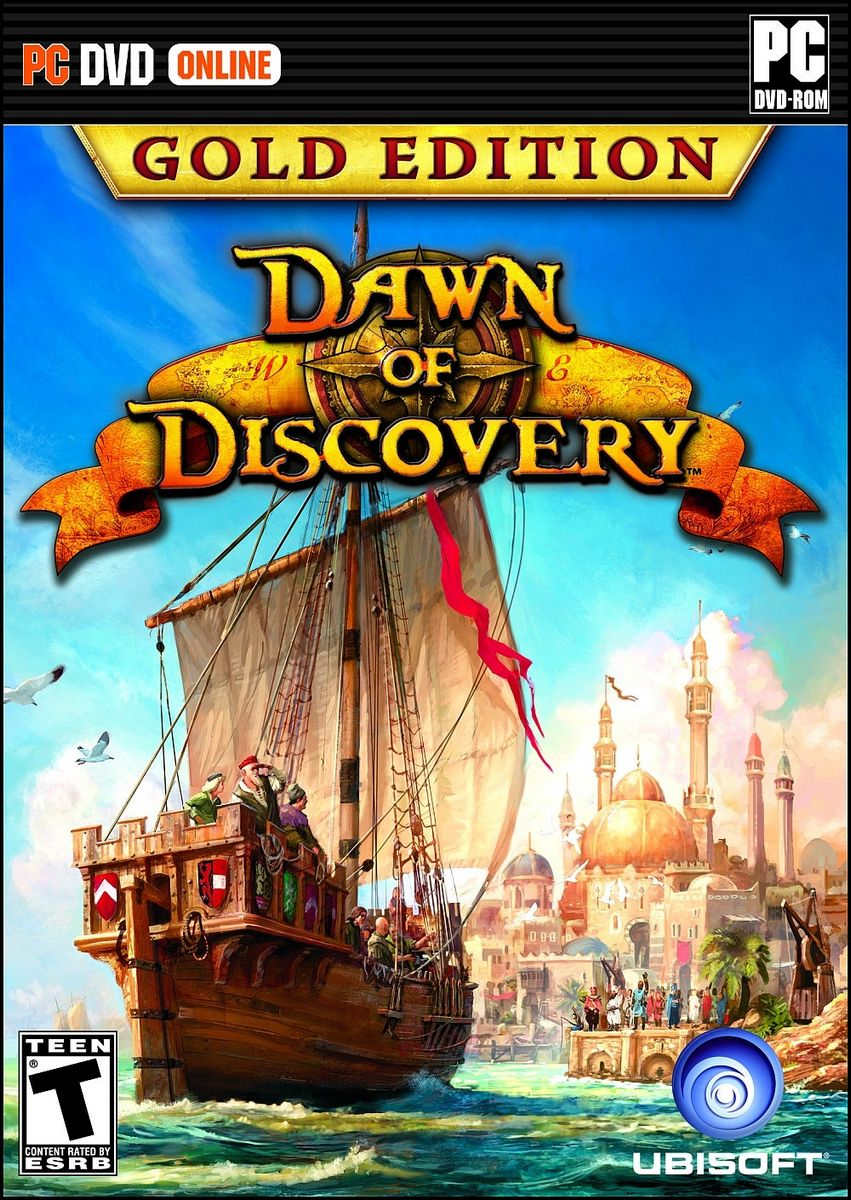Dawn of Discovery, also known as Anno 1404, is a city-building simulation game developed by Blue Byte and published by Ubisoft. This highly acclaimed game takes players on a journey through the Mediterranean during the late medieval period where they assume the role of a ruler tasked with managing resources, building infrastructure, and establishing trade networks in order to grow their cities.
As players progress through Dawn of Discovery’s extensive campaign mode or embark on sandbox playthroughs, they are challenged to navigate complex economic systems while keeping up with ever-evolving technology advancements. The game provides an immersive experience that blends historical accuracy with strategic gameplay mechanics that require careful planning and management skills.
In this article, we will take an in-depth look at what makes Dawn of Discovery such a captivating and challenging gaming experience. We will explore key features like resource management, diplomacy mechanics, trading strategies as well as discuss tips and tricks for beginners looking to jump into this exciting world-building adventure. Join us as we dive into one of the most beloved titles in city building simulation games – Dawn of Discovery.
- Introduction to the game Dawn of Discovery and its historical context
- Gameplay mechanics in Dawn of Discovery: city-building, resource management, and economy simulation
- Exploring the New World: trading routes, discovery missions, and expeditions in Dawn of Discovery
- Diplomacy and warfare in Dawn of Discovery: managing relationships with other factions and defending your empire against enemy attacks
- Advanced strategies for maximizing efficiency and productivity in Dawn of Discovery’s complex systems
- Modding community and user-generated content in Dawn of Discovery: custom scenarios, maps, buildings, and more
- Historical accuracy vs gameplay balance debate in Dawn of Discover: balancing realism with fun factor
- Legacy and impact on the genre: analyzing the influence that Dawn of Discovery had on city-building games like Banished or Anno 1800
Introduction to the game Dawn of Discovery and its historical context
It was first released in 2009 and has since become one of the most popular games in its genre. The game puts players in charge of building and managing a medieval city while dealing with various challenges such as natural disasters, trade agreements, and political unrest.
The historical context for Dawn of Discovery is set during the late Middle Ages when Europe was experiencing significant changes economically, socially, and politically. This era saw the rise of powerful monarchies that competed for resources through colonization and trade. Players must navigate this complex landscape by establishing trade routes with other nations to acquire goods needed to grow their cities while keeping an eye on their rivals’ activities.
One unique aspect of Dawn of Discovery is its attention to detail regarding historical accuracy. From the architecture to the clothing worn by characters within the game, everything has been carefully researched to ensure authenticity. Additionally, players can learn about real-world technologies used during this time period such as windmills or shipbuilding techniques which adds educational value beyond just entertainment purposes.
Overall, Dawn of Discovery provides an immersive experience into medieval life that not only entertains but also educates players on important aspects related to European history from a socio-economic perspective during this transformative era in humanity’s development towards modernity.
Gameplay mechanics in Dawn of Discovery: city-building, resource management, and economy simulation

The gameplay mechanics are designed to be intuitive, yet complex enough to challenge the seasoned gamer.
Players are tasked with building and managing their own cities in an immersive medieval setting. To do this successfully, they must explore new territories for resources such as wood, stone, iron ore and gold. These raw materials must then be processed into goods such as tools, weapons, clothes or food through a sophisticated production chain. This requires careful planning of transportation routes between different islands on which the player’s cities are located.
The economy simulation adds another layer of depth to Dawn of Discovery’s gameplay mechanics by allowing players to trade commodities with other AI-controlled factions or human opponents in multiplayer mode. Players can use diplomacy or forceful methods to establish profitable trading relations with foreign powers while competing against them for dominance over the seas.
Ultimately, Dawn of Discovery provides gamers with an intricate web of interconnected systems that require long-term strategic thinking and attention to detail. It presents a challenging but rewarding experience where success depends on efficient city-planning and optimal resource allocation within well-managed economies – all while keeping one eye firmly fixed on potential threats from rival factions!
Exploring the New World: trading routes, discovery missions, and expeditions in Dawn of Discovery
One of the core aspects of the game is exploration and trade.
Players must establish trading routes with other factions in order to acquire crucial resources such as spices, silks, and gems. This involves sending out fleets of ships across dangerous seas, facing pirates and storms along the way.
In addition to trading missions, players can embark on discovery expeditions to uncover new lands and resources. This requires careful planning and resource management as players must gather supplies for their journey while also defending against potential threats.

The various trading routes and expedition options add depth to Dawn of Discovery’s gameplay while also providing a historically accurate depiction of global commerce during this time period. Overall, exploring the new world through these means is an exciting aspect of Dawn of Discovery that adds another layer to its immersive experience.
Diplomacy and warfare in Dawn of Discovery: managing relationships with other factions and defending your empire against enemy attacks
Players must navigate complex relationships with competing factions in order to expand their empire and protect it from enemy attacks. Diplomacy involves negotiating trade agreements, forming alliances, and resolving conflicts through peaceful means. Warfare is necessary when negotiations fail, as players must mobilize troops, construct defenses, and engage in battles to protect their territory.
Effective diplomacy requires careful consideration of each faction’s strengths, weaknesses, goals, and motives. Players can use various tools such as gifts or espionage tactics to manipulate opposing factions into favorable positions. However, overly aggressive or deceptive behavior can result in negative consequences such as broken alliances or war declarations.
In addition to diplomatic maneuvers, players must also be prepared for defensive measures against enemy attacks. This involves constructing a well-fortified base with walls, towers and other structures that create chokepoints around key regions of the map. Players should also train a variety of units specialized for different types of combat scenarios in anticipation of potential enemies.
Overall success in Dawn of Discovery depends on balancing both diplomatic relations with neighboring factions while simultaneously preparing for any hostile actions that may arise. The ultimate goal is not just survival but dominance over all rival empires by controlling resources throughout the game world- this requires effective management across multiple fronts including military strategy development alongside skilled negotiation tactics used expertly towards friendly neighbors!
Advanced strategies for maximizing efficiency and productivity in Dawn of Discovery’s complex systems
To maximize efficiency and productivity in this game, advanced strategies are required. One such strategy is the use of automation tools for resource collection and distribution. This can be achieved by setting up trade routes between different islands that allow for automatic transport of goods.
Another effective strategy is specialization of production on each island. By focusing on producing specific resources on each island and then transporting them to other islands where they are needed, players can streamline their production process and reduce waste. Additionally, investing in research to unlock new technologies can also greatly enhance productivity.
In order to further improve efficiency, it is important for players to carefully balance resource allocation across all their settlements. This involves regularly assessing supply vs demand levels and making adjustments accordingly. It may also involve strategically relocating certain buildings or upgrading infrastructure in order to optimize workflow.
Overall, mastering Dawn of Discovery’s complex systems requires a combination of strategic planning, automation tools, specialized production methods, technological advancements and efficient resource management skills. With these advanced strategies at hand, players will be well-equipped to overcome any challenge presented by this challenging but rewarding game.
Modding community and user-generated content in Dawn of Discovery: custom scenarios, maps, buildings, and more
Players have the ability to create their own scenarios, maps, buildings, and more using a variety of tools provided by the developers. These custom creations can be shared with others via online platforms such as Steam Workshop or Nexus Mods.
Custom scenarios allow players to create their own unique storylines within the game world. They can set specific objectives, customize starting resources and conditions, and even add new factions or enemies for players to face. Maps are another popular form of user-generated content. Players can use tools such as World Editor to design intricate landscapes that fit their vision perfectly.
Buildings are also customizable within Dawn of Discovery. The game allows players to modify existing structures or create entirely new ones from scratch using a built-in building editor tool called “Building Architect”. This feature enables players’ creativity in designing structures that aren’t available in-game while also providing a way for them to express themselves through architecture.
Overall, the modding community has contributed significantly to enhancing player experience in Dawn of Discovery by creating endless possibilities for customization beyond what is offered in-game. The continued dedication and innovation demonstrated by this community ensure that Dawns of Discovery remains engaging long after its release date while cultivating a sense of community among its fans.
Historical accuracy vs gameplay balance debate in Dawn of Discover: balancing realism with fun factor

While some players prefer an immersive experience that accurately reflects historical events, others prioritize fun over realism. Striking a balance between these two aspects can be challenging for game developers.
On one hand, historical accuracy adds depth and complexity to the game world. It provides players with an opportunity to learn about different cultures, political systems, and economic structures from various time periods. However, strict adherence to history may come at the expense of enjoyable gameplay mechanics such as streamlined resource management or intuitive combat controls.

Conversely, prioritizing gameplay balance over historical accuracy can lead to oversimplified mechanics that detract from immersion. The challenge for developers lies in finding ways to incorporate historically-inspired elements while still ensuring entertaining gameplay experiences. Ultimately, whether a player values historicity or playability more heavily will depend on their individual preferences.
In conclusion, balancing realism with fun factor is crucial when creating strategy games like Dawn of Discovery. Developers must decide how much emphasis they wish to place on historical fidelity whilst also keeping gamers engaged through compelling content and immersive technology-driven interactions within the game’s environment—ultimately resulting in a product that satisfies both camps cohesively without overwhelming either party too severely by leaning too far towards one side or another excessively which would result in alienating some fans while pleasing others only partially at best!
Legacy and impact on the genre: analyzing the influence that Dawn of Discovery had on city-building games like Banished or Anno 1800
The game’s success paved the way for contemporary city-building titles such as Banished and Anno 1800 to incorporate similar mechanics that prioritize resource management over aesthetics.
One of the biggest impacts Dawn of Discovery had on subsequent games was its emphasis on diplomacy and trade agreements between players. Unlike traditional city-building games where progress solely depended on expanding one’s territory, Dawn of Discovery encouraged players to form alliances with neighboring regions in order to exchange goods and resources. This mechanic not only added depth to the game but also provided an avenue for peaceful cooperation instead of outright war.
Additionally, Dawn of Discovery introduced a complex supply chain system where production chains were dependent on specific resources obtained from other settlements or trade partners. This forced players to carefully plan their cities around available resources while also considering potential shortages or surpluses in demand. This concept has been adopted by modern-day city-builders such as Banished and Anno 1800 who have expanded upon it through more intricate simulation systems.
Overall, Dawn of Discovery’s legacy lies not only in its commercial success but also in how it influenced future city-building games by introducing new mechanics that prioritized strategic planning over mere aesthetic appeal. Its impact is still felt today as developers continue to build upon these concepts pioneered by Ubisoft Blue Byte almost twelve years ago.
In conclusion, Dawn of Discovery is a fantastic game that offers an immersive and engaging experience for players who enjoy strategy and city-building games. With its complex economic system, intricate trade mechanics, and comprehensive technology tree, the game challenges players to think strategically while managing their resources effectively.
Moreover, the game’s attention to detail in terms of graphics and sound design creates an atmosphere that draws players into the world of medieval Europe. The ability to control multiple islands adds another layer of complexity to the gameplay while providing ample opportunity for exploration and expansion.
Overall, Dawn of Discovery is a must-play game for anyone interested in simulation or strategy-based gaming. Its blend of historical accuracy with accessible gameplay makes it both entertaining and educational. Whether you’re a seasoned gamer or just starting out on your gaming journey, this title will provide hours upon hours of fun!
Read More:- Experience the Power of Trade with Patrician III: Rise of the Hanse Game – A Thrilling Adventure!.
- Conquer the Seas and Rule the Land with Medieval: Total War – Viking Invasion Game!.
- Conquer the World: Play Europa Universalis III and Rule as a Mighty Empire! (69 characters).
- Experience Life in Medieval Europe with Europa 1400: The Guild Game – Play Now!.
- Unleash Chaos in Warhammer 40,000: Dawn of War – Dark Crusade Game (65 characters).
- Conquer Medieval Europe with Medieval II: Total War Kingdoms – A Strategic Gaming Masterpiece.
- Conquer Ancient Rome with Europa Universalis: Rome – Vae Victis Expansion Pack! (68 characters).